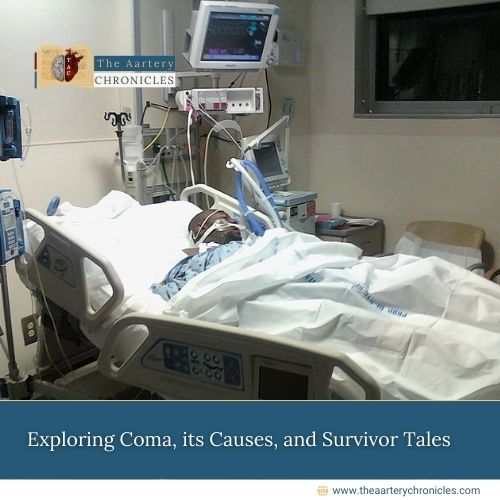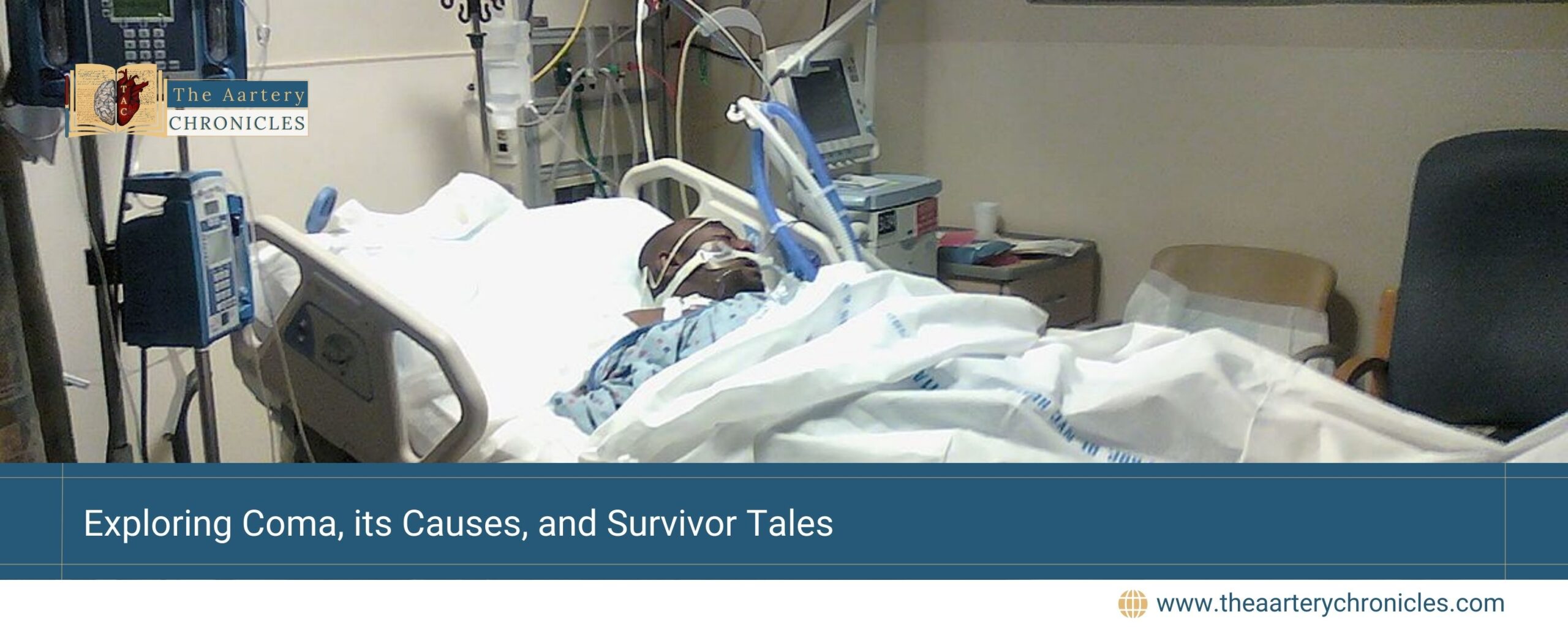

Exploring Coma, its Causes and Survivor Tales
Introduction
Coma is a state of profound unresponsiveness, characterized by the inability to awaken despite stimulation, with the eyes typically remaining closed. It signifies a severe disruption of normal brain function, often involving dysfunction in both cerebral hemispheres or the reticular activating system, crucial for maintaining arousal. While impaired consciousness denotes milder disturbances not meeting the criteria for coma, both conditions can stem from a variety of causes, ranging from structural issues to metabolic or toxic disturbances.
Diagnosis primarily relies on clinical assessment, complemented by laboratory tests and neuroimaging to pinpoint underlying factors. Immediate stabilization and targeted management of the underlying cause are paramount in treatment. For patients enduring prolonged coma, supportive care includes
- Passive range-of-motion exercises
- Enteral nutrition
- Strategies to prevent complications like pressure ulcers
Understanding these complexities not only informs clinical practice but also underscores the profound challenges faced by coma patients and their caregivers.
A Coma survivor’s Story
Claire Wineland’s two-week coma experience following surgery for cystic fibrosis complications highlighted the surreal disconnect between her conscious awareness and physical reality. In her mind, she vividly envisioned herself in Alaska, surrounded by breathtaking landscapes despite actually being in a medically-induced coma in a California hospital. The sensory stimuli she perceived—like feeling cold from ice packs—were interpreted through a distorted filter, creating an altered perception of her environment.
Throughout her coma, Claire retained awareness of the noises and activities around her. She described how these external stimuli reached her consciousness but were transformed into a different experience altogether. This phenomenon underscores a paradoxical state where the mind remains active and receptive, yet the body is unresponsive.
Claire’s experience resonates with many coma patients who have shared similar accounts of hearing conversations, sensing touch, or even recognizing loved ones’ voices while unable to communicate. This silent observation of their surroundings often leads to a profound emotional and psychological journey for both patients and their families. It raises questions about the nature of consciousness, the boundaries between perception and reality, and the impact of such experiences on long-term recovery and mental health.
What does being in a coma feels like?
Research suggests that Being in a coma can feel like being in a dream-like state where the person is alive but unconscious.
- There’s little to no brain activity, so the individual cannot respond to touch, sound, or any stimuli.
- While some coma patients may breathe on their own, many require assistance from machines.
- It’s unclear whether they can hear, but studies suggest they might perceive sounds, which could potentially aid in their recovery.
Recovery outcomes vary widely depending on the severity and cause of the brain damage, with some patients regaining consciousness over time, while others may transition into a vegetative or minimally conscious state.

Some Causes of Coma
1. Stroke:
– Blood Flow Interruption: Lack of blood flow to a major part of the brain can lead to a coma.
– Swelling: Swelling from blood loss can also contribute to a coma.
2.Blood Sugar Imbalances in Diabetes:
– Hyperglycemia: Extremely high blood sugar levels can cause a coma.
– Hypoglycemia: Very low blood sugar levels can also lead to a coma. This type is usually reversible once blood sugar is corrected, but prolonged hypoglycemia can cause permanent brain damage and persistent coma.
3.Anoxic Brain Injury:
– Total Lack of Oxygen: A complete lack of oxygen to the brain for a few minutes can cause cell death in brain tissues. This can result from heart attack, head injury, trauma, drowning, drug overdose, or poisoning.
4. Trauma:
– Head Injuries: Can cause swelling and/or bleeding in the brain. Swelling pushes the brain against the skull and may damage the reticular activating system (RAS), which controls arousal and awareness.
5. Swelling:
– Brain Tissue Swelling: Can occur without trauma due to lack of oxygen, electrolyte imbalances, or hormonal issues.
6. Bleeding:
– Brain Bleeding: Bleeding in the brain layers can cause swelling and compression, damaging the brainstem and RAS. Causes include high blood pressure, ruptured cerebral aneurysms, and tumors.
Comas can result from various injuries and conditions that affect the brain, leading to a prolonged state of unconsciousness where the person is unresponsive to their environment.









